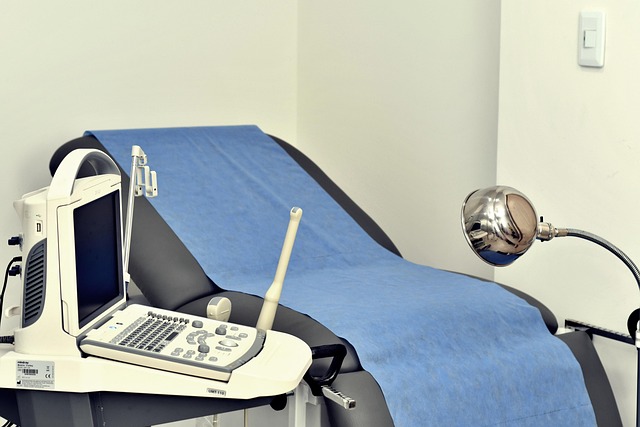Recognizing Kidney Disease: Early Symptoms You Shouldn’t Ignore
Kidney disease gradually impairs the organs’ ability to remove waste and excess fluid from the bloodstream. Without proper treatment, it can lead to serious complications such as kidney failure. Identifying early symptoms is crucial for prompt medical attention and slowing the disease's advancement. Being informed and taking action early can play a key role in protecting both kidney function and overall health.

10 Signs Your Kidneys are Crying for Help
When kidney function declines, your body develops several telltale symptoms that shouldn’t be ignored. Persistent fatigue and weakness often occur because damaged kidneys struggle to produce enough erythropoietin, a hormone that stimulates red blood cell production. This leads to anemia, leaving you feeling constantly tired despite adequate rest.
Swelling in your feet, ankles, hands, or face indicates fluid retention, as compromised kidneys cannot effectively remove excess water and sodium from your system. Changes in urination patterns represent another crucial warning sign. You might notice foaming or bubbling urine, which suggests protein leakage, or experience increased nighttime urination, blood in urine, or difficulty urinating.
Unexplained nausea, vomiting, and loss of appetite frequently accompany kidney dysfunction as waste products accumulate in your bloodstream. Persistent back pain, particularly in the kidney area below your ribcage, muscle cramps, shortness of breath, and metallic taste in your mouth complete the constellation of symptoms that indicate your kidneys need immediate medical attention.
Signs and Symptoms of Disease Progression
As kidney disease advances through its five stages, symptoms typically become more pronounced and numerous. In early stages, you might experience only subtle changes like mild fatigue or slight alterations in urination frequency. However, these seemingly minor symptoms represent the beginning of a potentially serious health condition.
Stage 3 kidney disease often brings more noticeable symptoms including persistent swelling, increased fatigue, and changes in appetite. Your skin might become dry and itchy as waste products build up in your system. Sleep disturbances become common, partly due to increased nighttime urination and partly from the body’s struggle to maintain proper chemical balance.
Advanced kidney disease produces severe symptoms including severe swelling throughout the body, significant shortness of breath, persistent nausea and vomiting, and confusion or difficulty concentrating. At this stage, immediate medical intervention becomes critical to prevent life-threatening complications.
Sign and Symptoms Recognition Strategies
Monitoring your body’s signals requires systematic attention to changes in your daily experience. Keep track of urination patterns, noting frequency, color, and any unusual characteristics like foaming or strong odors. Document energy levels throughout the day, as kidney disease-related fatigue often follows specific patterns.
Pay attention to swelling patterns, which typically begin in the extremities and gradually affect other body areas. Monitor your appetite and weight, as unexplained weight gain might indicate fluid retention while weight loss could suggest advancing kidney disease affecting your nutritional status.
Regular blood pressure monitoring proves essential, as kidney disease and hypertension create a dangerous cycle where each condition worsens the other. Home blood pressure monitors allow you to track trends and provide valuable information to healthcare providers about your kidney health.
Treatment Options and Healthcare Providers
When seeking kidney disease treatment, several reputable healthcare systems and specialized centers offer comprehensive care across the United States. Understanding your options helps ensure you receive appropriate treatment for your specific needs.
| Provider Type | Services Offered | Key Features |
|---|---|---|
| DaVita Kidney Care | Dialysis, education, nutrition counseling | 2,800+ locations nationwide, personalized care plans |
| Fresenius Medical Care | Dialysis, transplant support, home therapy | Advanced technology, comprehensive patient support |
| University Medical Centers | Full spectrum kidney care, research trials | Academic expertise, cutting-edge treatments |
| Nephrology Associates | Specialist consultations, early intervention | Focused expertise, preventive care emphasis |
Diagnostic Approaches and Early Detection
Healthcare providers use several diagnostic tools to assess kidney function and confirm disease presence. Blood tests measuring creatinine and blood urea nitrogen levels provide crucial information about kidney filtering capacity. The estimated glomerular filtration rate calculation offers a comprehensive picture of kidney function decline.
Urine tests detect protein, blood, or other abnormalities that indicate kidney damage. Imaging studies including ultrasounds, CT scans, or MRIs help visualize kidney structure and identify potential causes of dysfunction. In some cases, kidney biopsies provide definitive diagnostic information.
Regular screening becomes particularly important for individuals with diabetes, high blood pressure, family history of kidney disease, or other risk factors. Early detection allows for interventions that can significantly slow disease progression and preserve kidney function for years.
Prevention and Lifestyle Management
While some kidney disease causes cannot be prevented, many cases result from manageable conditions like diabetes and hypertension. Maintaining healthy blood sugar levels through proper diet, exercise, and medication compliance significantly reduces kidney disease risk for diabetic individuals.
Blood pressure control represents another crucial prevention strategy. Regular monitoring, medication adherence, and lifestyle modifications including reduced sodium intake and regular exercise help protect kidney function. Staying adequately hydrated, avoiding excessive over-the-counter pain medication use, and maintaining a healthy weight further support kidney health.
Working with healthcare providers to develop personalized prevention strategies ensures you receive appropriate screening and early intervention when necessary. Local healthcare services in your area can provide regular monitoring and support for maintaining optimal kidney health.
Understanding kidney disease symptoms empowers you to take proactive steps toward protecting your health. While these symptoms can indicate serious health issues, early recognition and appropriate medical care can significantly improve outcomes. Remember that kidney disease often progresses silently, making awareness of subtle symptoms particularly important for maintaining long-term health and quality of life.
This article is for informational purposes only and should not be considered medical advice. Please consult a qualified healthcare professional for personalized guidance and treatment.




